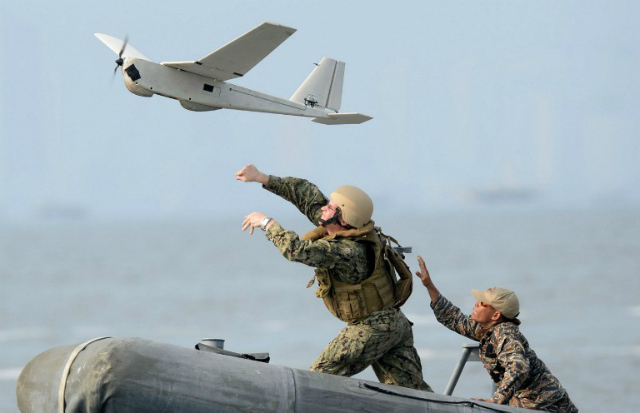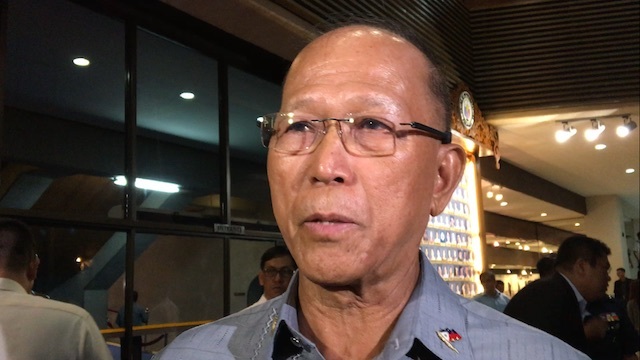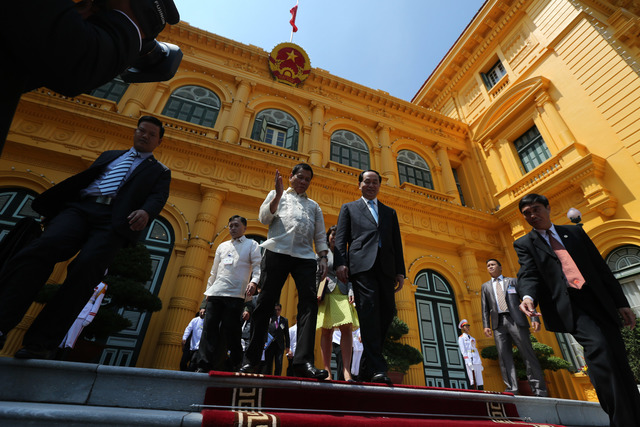PHILIPPINE Maoist guerrillas will not surrender their weapons even if a peace deal is reached with the government of President Rodrigo R. Duterte, the rebels’ chief negotiator said on Thursday, a potential deal-breaker in the current talks.
The Philippines and the rebels declared indefinite unilateral cease-fires in Oslo last month as part of an accord to accelerate efforts to end a conflict that has lasted almost five decades and killed at least 40,000 people.
The government expressed hopes that a peace agreement could be reached within a year of the Oslo talks, the first formal meeting for five years.
The guerrillas stopped short of setting a deadline. Luis Jalandoni, the Netherlands-based top negotiator for the National Democratic Front (NDF), the political arm of the communist movement, said the military wing, the New People’s Army, would not agree to disarm.
The government expressed hopes that a peace agreement could be reached within a year of the Oslo talks, the first formal meeting for five years.
The guerrillas stopped short of setting a deadline. Luis Jalandoni, the Netherlands-based top negotiator for the National Democratic Front (NDF), the political arm of the communist movement, said the military wing, the New People’s Army, would not agree to disarm.
“We don’t think the New People’s Army should be disarmed or the weapons surrendered and destroyed,” he told reporters in Manila.
An army general, who declined to be named because he was not authorized to speak to the media, said the rebels’ position could be a deal-breaker.
“Can you really have two armies under one government?” he asked. “Our government will not agree to this. Our Muslim brothers had agreed to disarm and demobilize their army under a peace deal. Why can’t the communists?”
An army general, who declined to be named because he was not authorized to speak to the media, said the rebels’ position could be a deal-breaker.
“Can you really have two armies under one government?” he asked. “Our government will not agree to this. Our Muslim brothers had agreed to disarm and demobilize their army under a peace deal. Why can’t the communists?”
In 2014, the mainstream Muslim rebel group, Moro Islamic Liberation Front, signed a peace deal with the government, agreeing to disband its army and surrender weapons in exchange for an autonomous area in the south.
The communist rebels have been waging guerrilla warfare in the countryside since 1969 but entered into an on-off negotiations with the government in 1986, brokered by Norway.
Next week, government and rebel negotiators return to Oslo for a second rounds of talks to accelerate deals on a truce and an amnesty declaration by Oct. 26.
“It’s very difficult yet it is achievable,” Mr. Jalandoni said.
The communist rebels have been waging guerrilla warfare in the countryside since 1969 but entered into an on-off negotiations with the government in 1986, brokered by Norway.
Next week, government and rebel negotiators return to Oslo for a second rounds of talks to accelerate deals on a truce and an amnesty declaration by Oct. 26.
“It’s very difficult yet it is achievable,” Mr. Jalandoni said.






